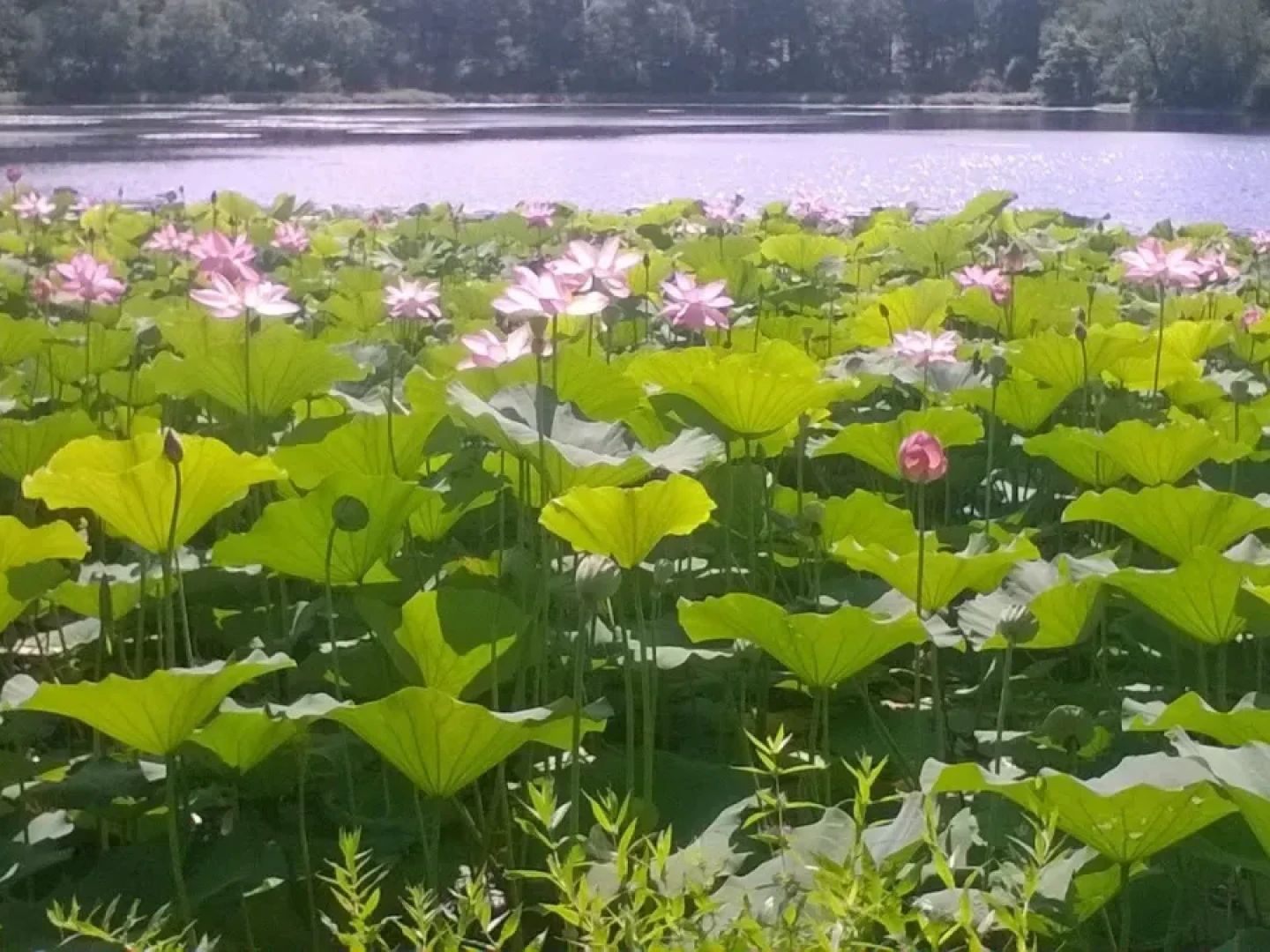It may look beautiful, but the sacred lotus has been taking over Cranston’s Meshanticut Lake.
When the plant native to East Asia (scientific name Nelumbo nucifera) sinks its roots into the lake bottom, it spreads a blanket of green lily pads and purple flowers across the water at a rate that can crowd out native plant species.
On a recent summer day, West Warwick resident Christopher Lacross said at times he’s seen the sacred lotus cover most of Meshanticut Lake, an urban oasis in the heart of Cranston that drains into the Pawtuxet River.
Lacross, a night shift worker at a local plastics factory, said he admires the sacred lotus’ beauty, but the plant also took over one of his favorite places to fish and relax with his kids.
“It spreads like fire on dried out hay,” Lacross said.
Meshanticut Lake’s lotus problem has an unusually clear origin story, which clarifies the significant role that individuals can play in affecting local ecosystems. Some invasive species that have changed how nature looks around the country were introduced in private gardens by people with little understanding of what they were doing.
In this case, a spokesperson for Rhode Island’s Department of Environmental Management said the sacred lotus was introduced to Meshanticut Lake by a single person in 2014. The woman had lost a relative and released a handful of lotus seeds into Meshanticut Lake as a memorial, acknowledging the flower’s significance in Buddhist and Hindu traditions. The spokesperson said the woman didn’t know the lotus was invasive.
Ten years later, this innocent mistake still hasn’t been reversed. DEM has chemically treated the pond five times, and volunteers have tried to pull the lotus out by the roots.
As of last week, DEM had beaten the sacred lotus back into a small corner on the southwest side of the lake.
An aquatic specialist who works as a contractor for DEM sprayed herbicide on the patch on Friday. Lacross said the lotuses there withered away within a day.
But the specialist, Jason Grundy, said it’s not time to declare victory yet.
He said the sacred lotus’ seedpods can lay dormant for more than six years, sprouting up new patches that need to be exterminated before they go to seed.
If left unchecked, Grundy said, the lotus could quickly take over the lake again.









